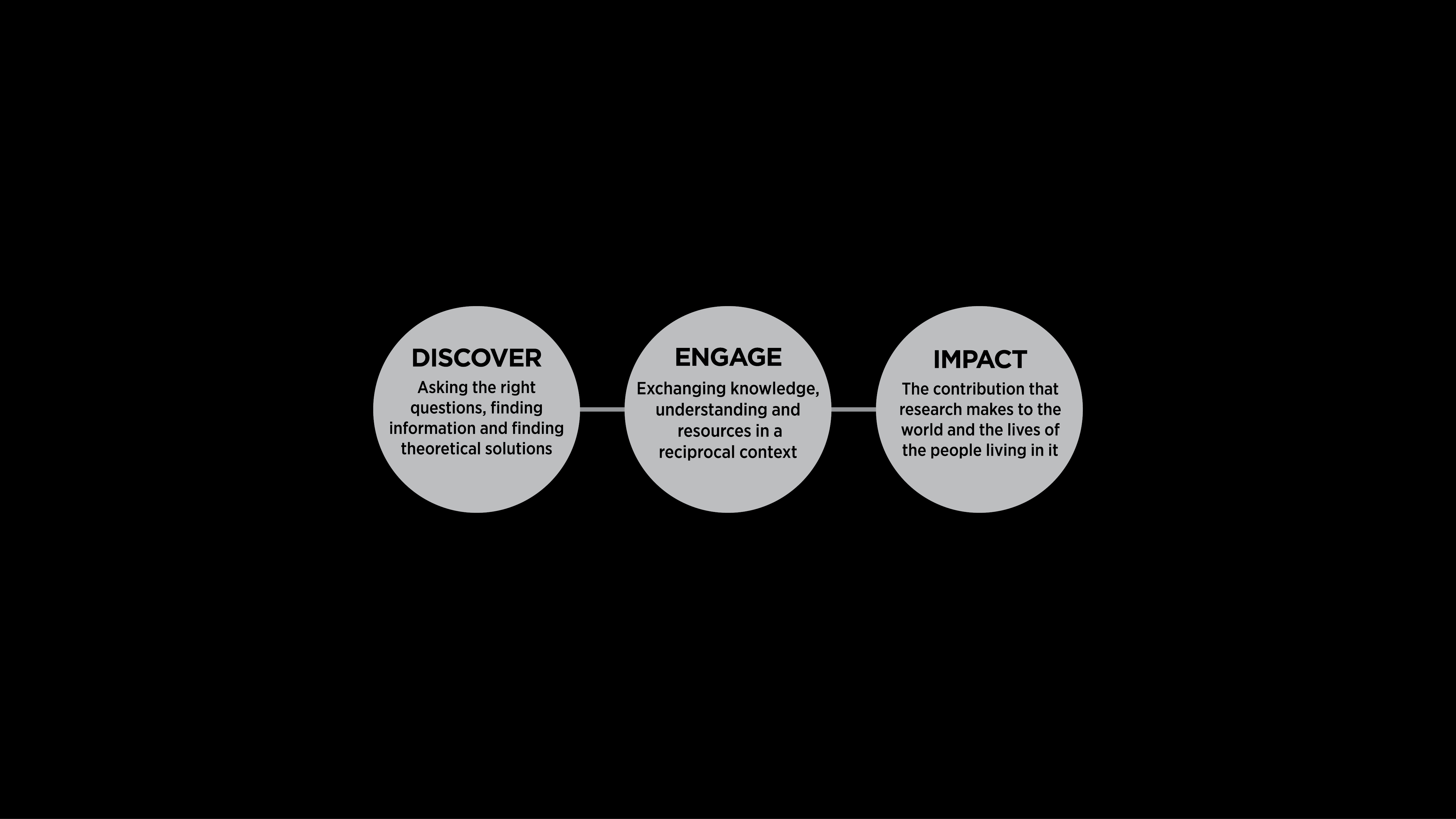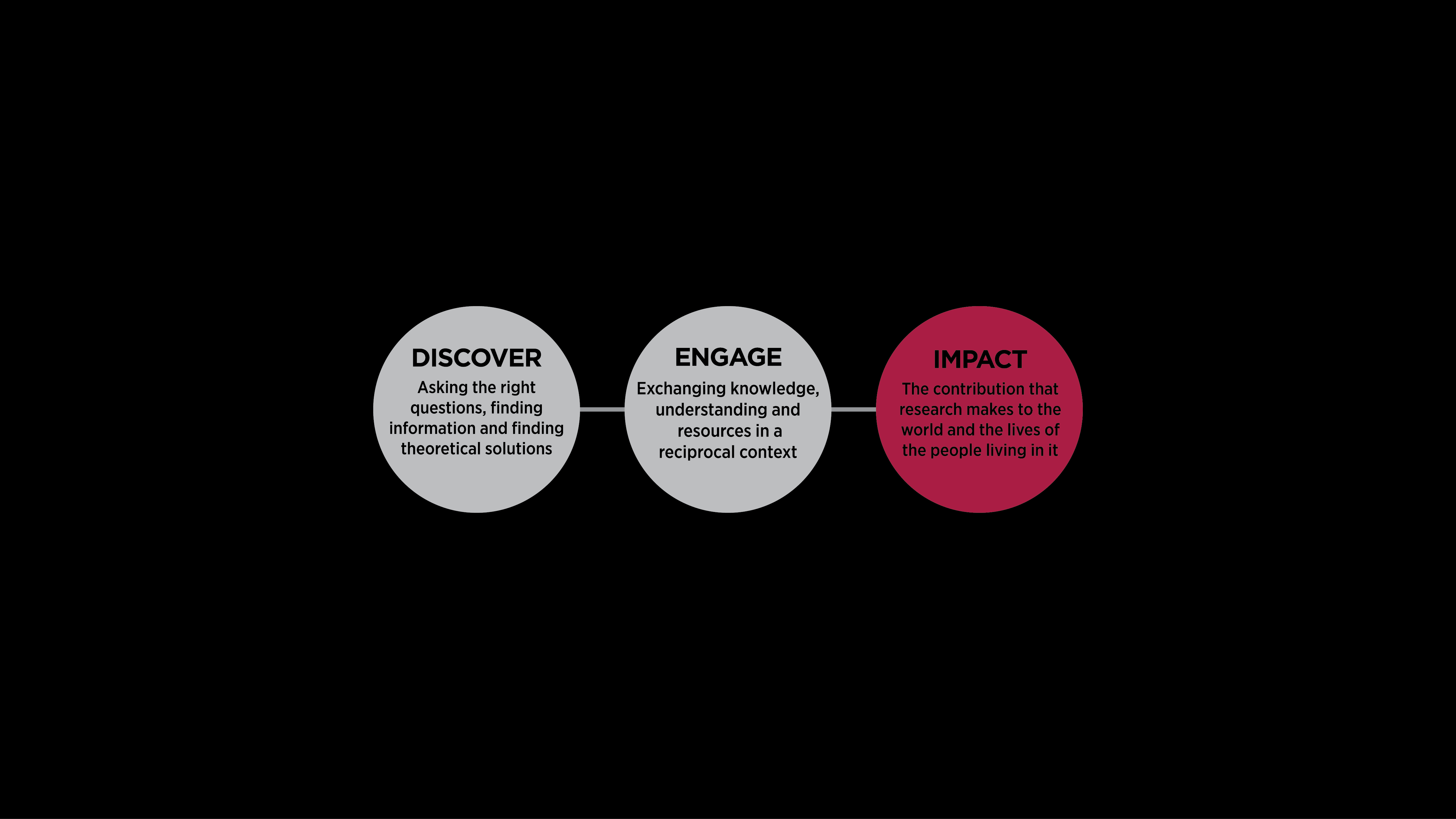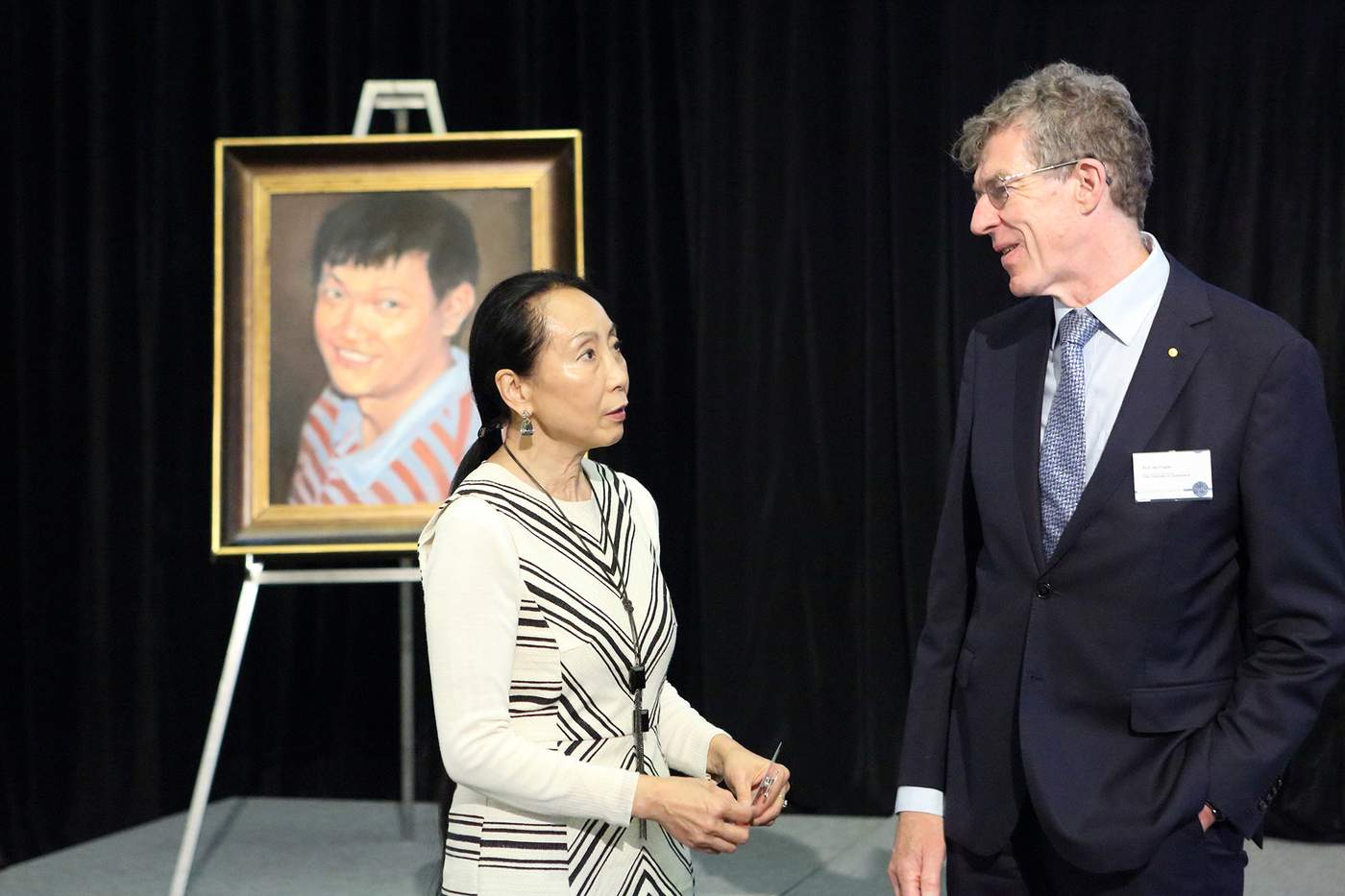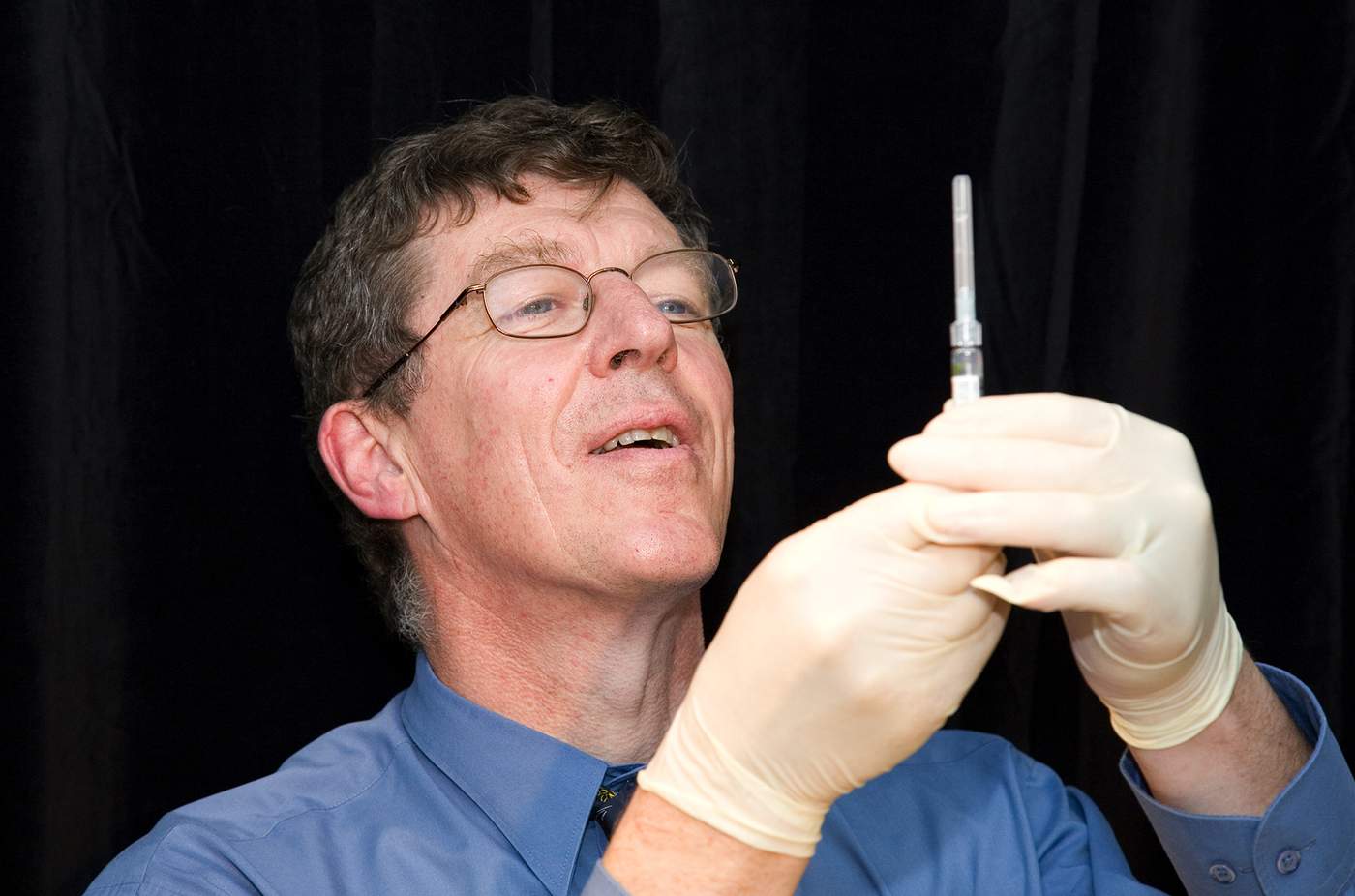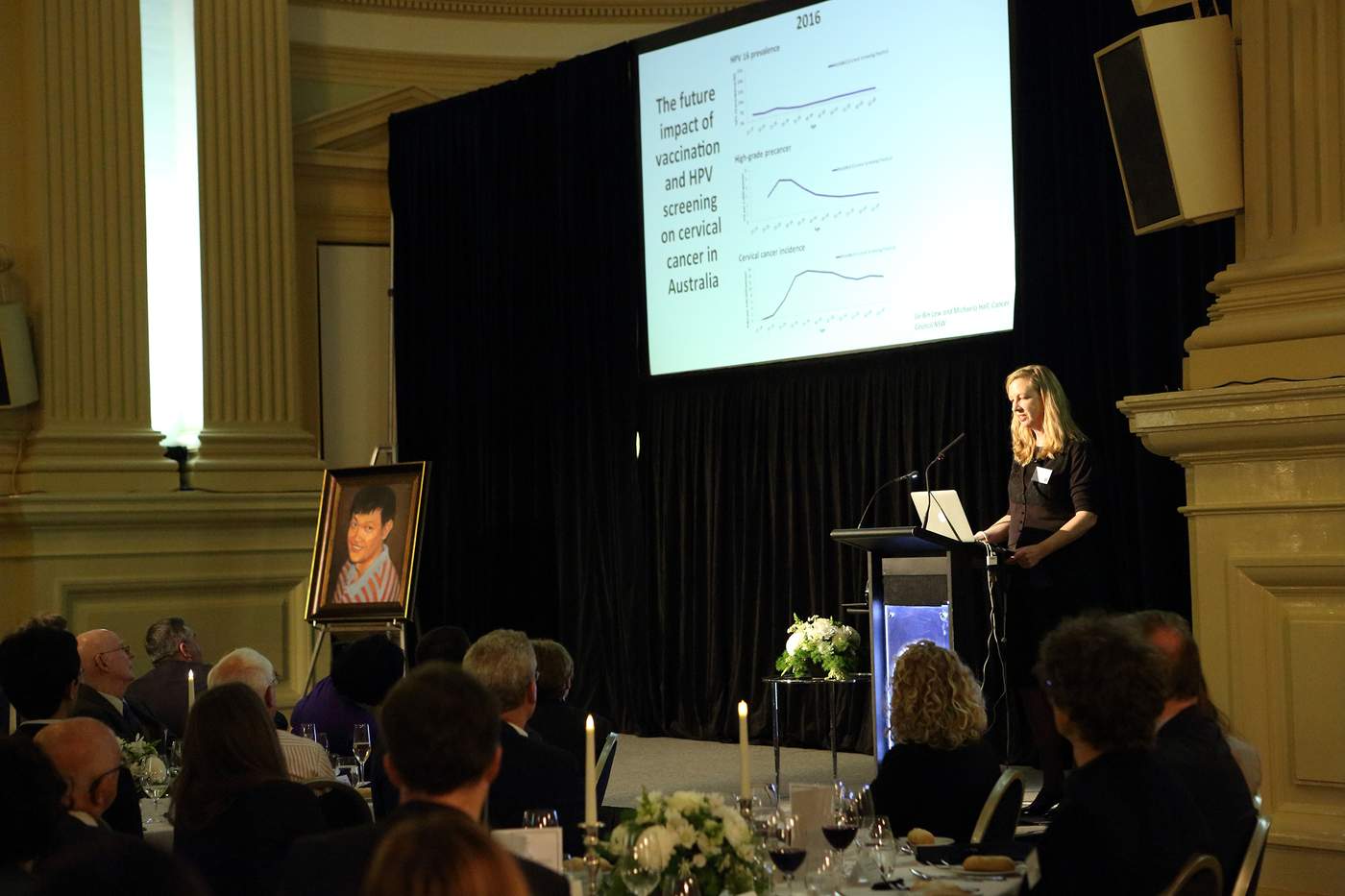A momentous step forward for the vaccine was announced this year, when authorities in China (the birthplace of Dr Zhou and Dr Sun) verified the approval to sell one of the HPV vaccines domestically from 2017.
“The recent approval by the Chinese Government is a giant step in improving women's health in China,” says Dr Sun.
“We have seen the success in other countries that have introduced a vaccination program. To extrapolate those figures to a populace the size of China will see a dramatic difference in the quality of women's health.”
Dr Sun says her husband would have been pleased with the results now being realised around the world.
“Jian was a very humble man and was happiest when working in his lab. I don’t think Jian would have seen this as his discovery, his vaccine or his achievement. Were he alive today, he would simply be happy to have been part of something that saved lives,” she says.
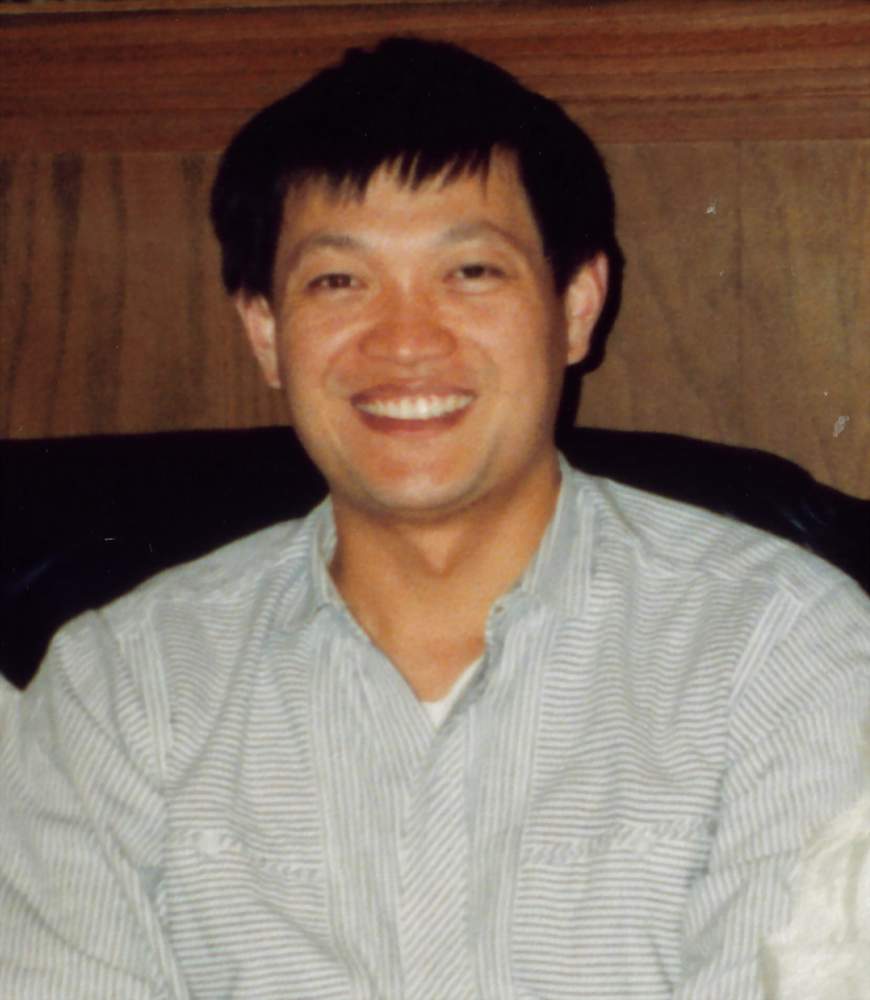
The late Dr Jian Zhou
“I am so proud of Jian’s work, and hold equal amounts of surprise and disappointment that the country of our birth took so long to introduce a vaccination program.
“The benefits have been remarkable and I always had faith in the effectiveness of the vaccine, but the Australian government needs to be applauded. Without that level of commitment and funding, the nation’s cervical cancer reduction rates would look very different.
“I hope other governments will look at these results and realise that the investment in early prevention ensures significant savings in the long run, and less impact on the overall healthcare budget.”
Dr Sun believes her husband would hope future medical scientists become inspired to innovate and are given the same opportunities he enjoyed.
“Jian enjoyed fostering talent and mentoring those eager to learn. Through the Dr Jian Zhou Memorial Scholarship, he continues to identify and develop research talent.”
Professor Frazer says the success of the vaccine over the last decade demonstrates the power of teamwork to make a significant difference to global health through disease prevention.
“Introduction of the vaccines into China would demonstrate the commitment of the largest country on the planet to the eradication of a common preventable disease, and would therefore set an example for other developing economies to follow,” he says.
The 2006 Australian of the Year believes his co-creator Dr Zhou would have seen this as a measure of the influence of scientists educated in China to make a real difference in global health.
“While the figures are encouraging, the real success will be with universal adoption of immunisation,” says Professor Frazer.
Cancer Council NSW Director of Cancer Research Professor Karen Canfell reflected on the impact of the vaccines during the 2016 Jian Zhou Memorial Oration at Brisbane’s Customs House in October this year.
“In the first four to five years, we have observed a 90 per cent decrease in HPV prevalence for the vaccine-included HPV types in 18–24-year-old women,” says Professor Canfell.
The co-principal investigator of Compass, the first ever large-scale clinical trial to assess screening tests in a HPV-vaccinated population, says there is also a marked decline in anogenital warts in women in their early 20s, and a decline in the rates of genital warts in young heterosexual men, even before they were included in the vaccination program.
“The incidence of cervical precancerous abnormalities shows a 36 per cent reduction in 20–24-year-olds, which means they will be at a lower lifetime risk of ever developing cervical cancer,” says Professor Canfell.
“With the HPV vaccine program rolled out in 2007 and offered to all women up to 26 years of age, we have now reached a huge milestone where every woman in Australia aged 35 years and younger is better protected against HPV than ever before – a truly remarkable feat.”
The story so far
1990: Research begins when molecular virologist Dr Jian Zhou joins Professor Ian Frazer at UQ to tackle the problem of developing a vaccine for HPV
1992: UniQuest submits a complete patent application on the HPV technology
1994: UniQuest licenses the intellectual property to CSL Limited in Melbourne
1996: CSL sub-licenses the HPV technology to Merck & Co. and retains the right to market in Australia and New Zealand
1999: Dr Jian Zhou passes away
2001: The Phase 3 clinical trial involving more than 12,000 women aged 16–26 from 13 countries begins
2005: CSL enters into a cross-licensing and settlement agreement with GlaxoSmithKline for their cervical cancer vaccine product called Cervarix
2006: Food and Drug Administration (FDA) approves Gardasil
2006: Professor Frazer is named Australian of the Year
2006: Therapeutic Goods Administration approves Gardasil for use in Australia and the vaccine is administered privately
2007: Australia becomes the first country to roll out a national HPV vaccination program
2009: FDA approves Cervarix
2012: Professor Frazer is named a National Living Treasure and receives a Companion of the Order of Australia
2013: Males are included in the National HPV Vaccination Program
2015: Professor Frazer and the late Dr Zhou receive Popular Prize at the European Patent Office’s Annual European Inventor Awards
2016: Findings published in the journal Clinical Infectious Diseases suggests Australian women who received the full three courses of Gardasil have experienced an 86 per cent reduction in HPV infection
2017: Prime Minister Malcolm Turnbull announces an improved version of Gardasil that has been shown to prevent 93 percent of HPV strains, up from 70 per cent
Opening photo credit: istock.com/Getty Images


